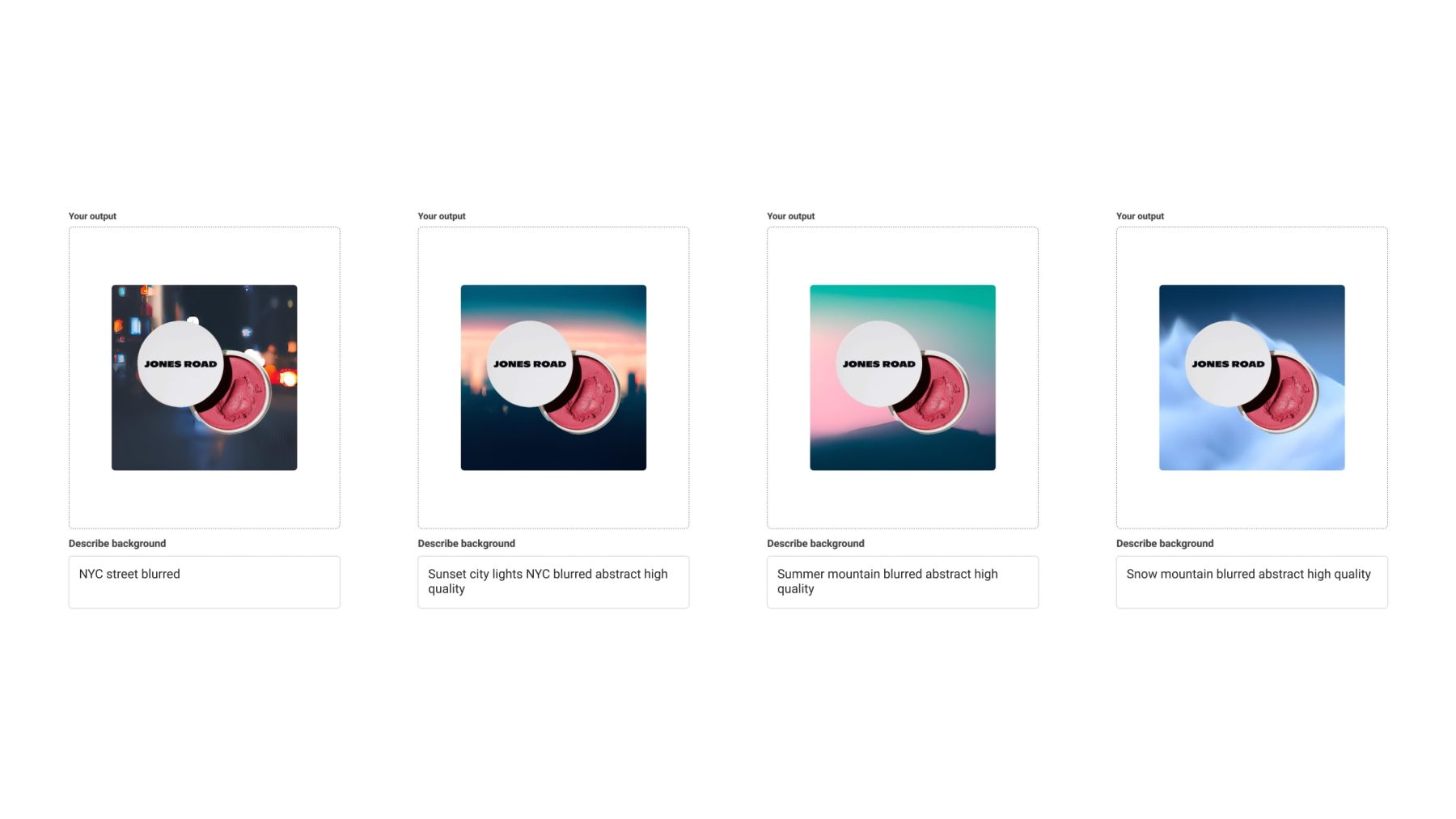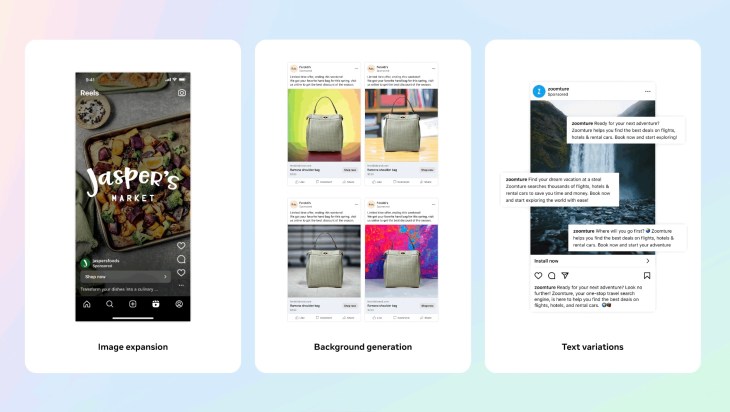Meta Platforms, the social media giant behind Facebook and Instagram, is making a significant push into the realm of artificial intelligence (AI) for advertising. On Tuesday, they announced the expansion of their generative AI ad products, offering advertisers a suite of powerful tools to streamline and personalize their ad campaigns.
A Glimpse into the Future of Ad Creation: Automatic Image Variation and Text Overlays
The centrepiece of this expansion is a brand-new tool that allows advertisers to automatically generate variations of their existing images. This innovative feature empowers them to create a wider range of ad creatives without the need for extensive design work. Imagine uploading an image of your product and receiving multiple variations with different orientations, and backgrounds, or even featuring people using the product in various settings. The possibilities are vast.

Building on Existing Text Generation Tools
Meta is further bolstering its AI capabilities by expanding its text generation offerings. Advertisers can now leverage AI to generate compelling headlines and key selling points for their campaigns. This not only saves time and resources but also offers the potential to explore a wider range of creative messaging options.

A Touch of Text: Overlaying Text on Generated Images
Taking the concept a step further, Meta is introducing the ability to overlay text directly onto generated images. This allows advertisers to seamlessly integrate their brand messaging with the visually-modified content, creating a cohesive and impactful ad experience.

Tailoring the Experience with Text Prompts (Coming Soon)
Meta isn’t stopping there. In the coming months, they plan to introduce an option for advertisers to input text prompts. These prompts will serve as a guide for the AI, allowing for even more customized image variations that align perfectly with the advertiser’s specific goals.

Addressing Concerns: Responsible Use and Watermarking (Eventually)
While this announcement marks a significant leap forward in AI-powered advertising, Meta acknowledges the need for responsible use. Similar to previous generative AI tools, they will restrict access to advertisers operating in regulated industries like politics.
However, a potential issue arises regarding the lack of watermarks on the initial test version of the tool. Meta previously emphasized watermarks as a key safety feature when unveiling their user-facing Meta AI assistant. Executives have assured users that they are still working on a labelling solution for AI-generated ads and will share concrete guidelines before the global rollout, expected by the end of 2024.
The AI Ad Race Heats Up: Meta vs. Google
This move by Meta positions them as a frontrunner in the AI ad space. It’s worth noting that their competitor, Google, announced a similar expansion of AI ad tools back in February. Google’s offering incorporates watermarks using SynthID technology developed by DeepMind, their AI research lab. The competition between these tech giants is sure to accelerate innovation and potentially benefit advertisers with more powerful and versatile AI-powered ad creation tools.
Advertiser Hesitation: Embracing Automation vs. Protecting Intellectual Property
While many advertisers have readily adopted AI tools for automated ad placement, the newer generative AI features are still met with some hesitation. Concerns exist about how tech companies will utilize uploaded images to train their models. Some brands worry that their logos or other intellectual property could inadvertently end up in other AI-generated content. Meta will need to address these concerns effectively to ensure widespread adoption of their new AI ad creation suite.
The future of advertising seems to be inextricably linked with artificial intelligence. Meta’s latest advancements offer a glimpse into this future, empowering advertisers to create personalized and dynamic ad experiences with the help of AI. As the technology continues to evolve and concerns are addressed, we can expect even more sophisticated and impactful AI-powered advertising campaigns in the years to come.










